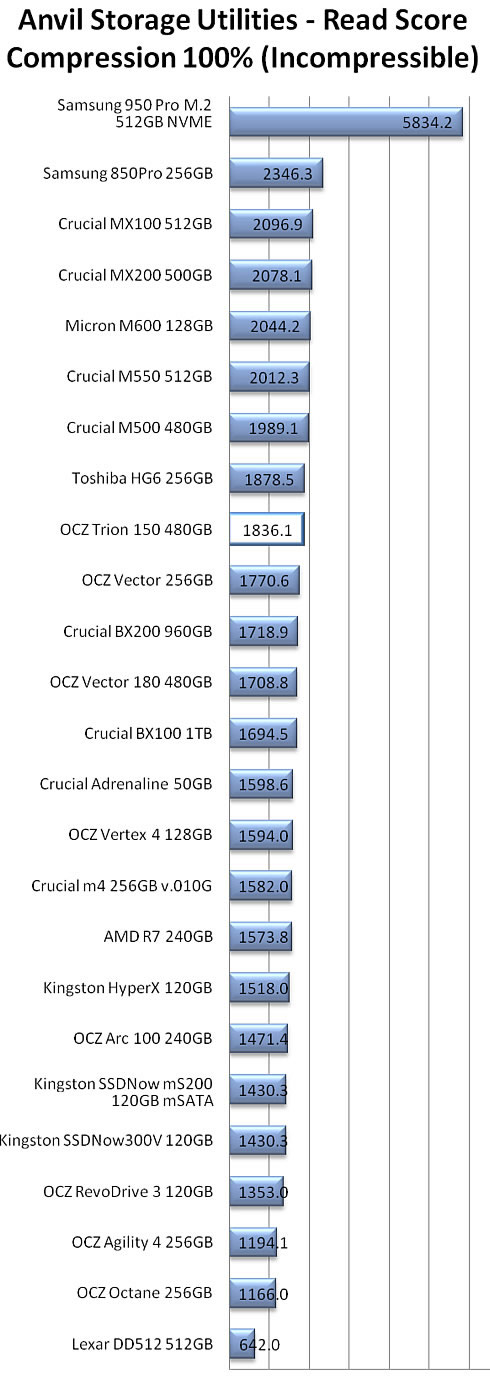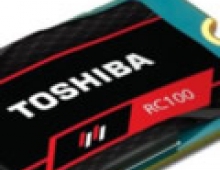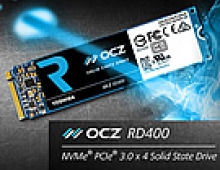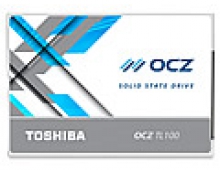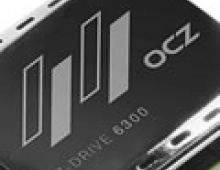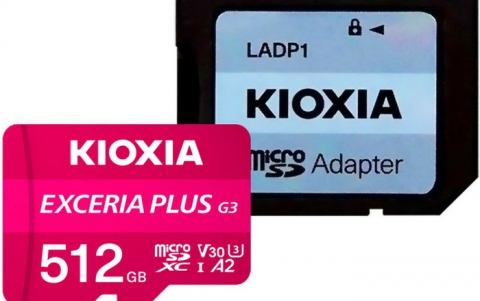OCZ Trion 150 480GB SSD review
7. Anvil Pro
The next benchmark is the Anvil Pro, an ‘all inclusive’ storage utility. The software is tests transfer speeds as well as IOPS The IOPS tests can be configurable with preset testing scenarios for read (Seq 4MB, 4K, 4K QD4, 4K QD16, 32K and 128K), write (Seq 4MB, 4K, 4K QD4, 4K QD16) and mixed IO.
We used the software with the OCZ Trion 480GB SSD and tested the drive with 0-fill compression (RAW), 8% compression, 25% compression, 45% compression, 67% compression and finally 100 % (incompressible data).
Although the ASSD benchmark showed that the compressibility of data being transferred on the OCZ Trion 480GB SSD had little to no impact on the drive's performance, the results we got from the Anvil Pro benchmark were not so consistent across different compressions.
Starting with the 0-fill results (compressible), OCZ's drive got a very high overall score, which is based on both its read and write behavior. OCZ's SSD left behind the Samsung 850 Pro as well as Crucial's drives. This should be attributed to the very high overall read results, mainly in the 0-fill sequential 4MB, 4K, 4K QD4 and 4K QD16 tests.
In the 0-fill write results, the drive's sequential 4MB performance was good, but it could be higher in the remaining 4K, 4K QD4 and 4K QD16 tests. We should also note here that in the 4k write 0-fill write tests, the Trion 150 SSD was slower than in the corresponding test with incompressible data, and that its 4K QD16 0-fill write performance was low.


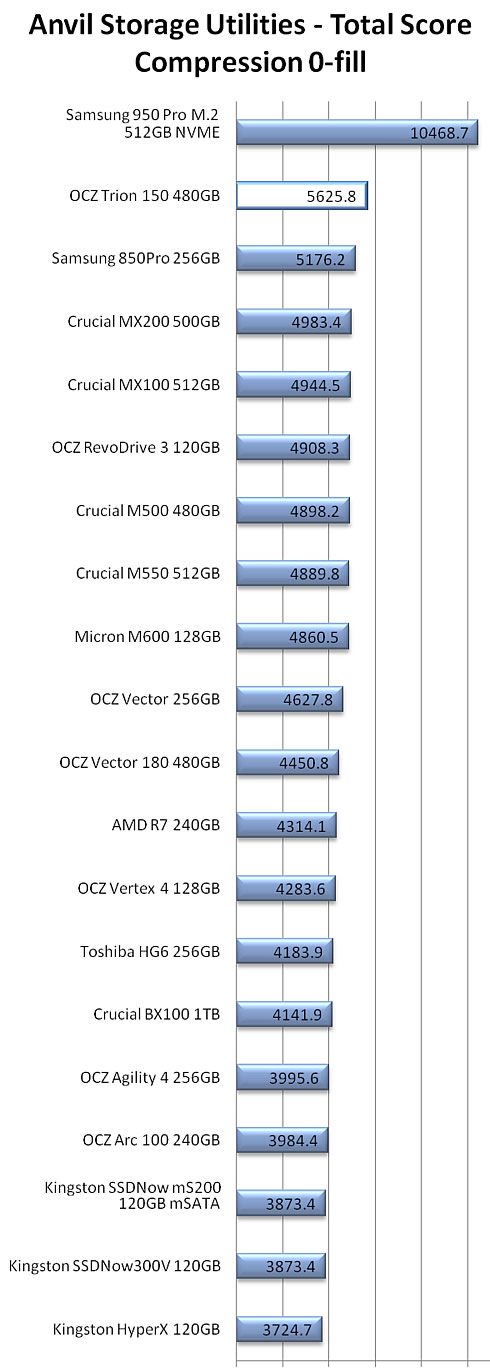
With incompressible data, OCZ's Trion SSD got an overall average score (read,write).
Specifically, it was fast enough in the 4MB Seq read tests, and remained competitive in the 4K read tests, although its performance was lowering as we were moving to higher queue depths.
In the write part, the Trion SSD was fast in the 4MB Seq test, but still slower than some other SSDs. It's 4K write performance was average.
